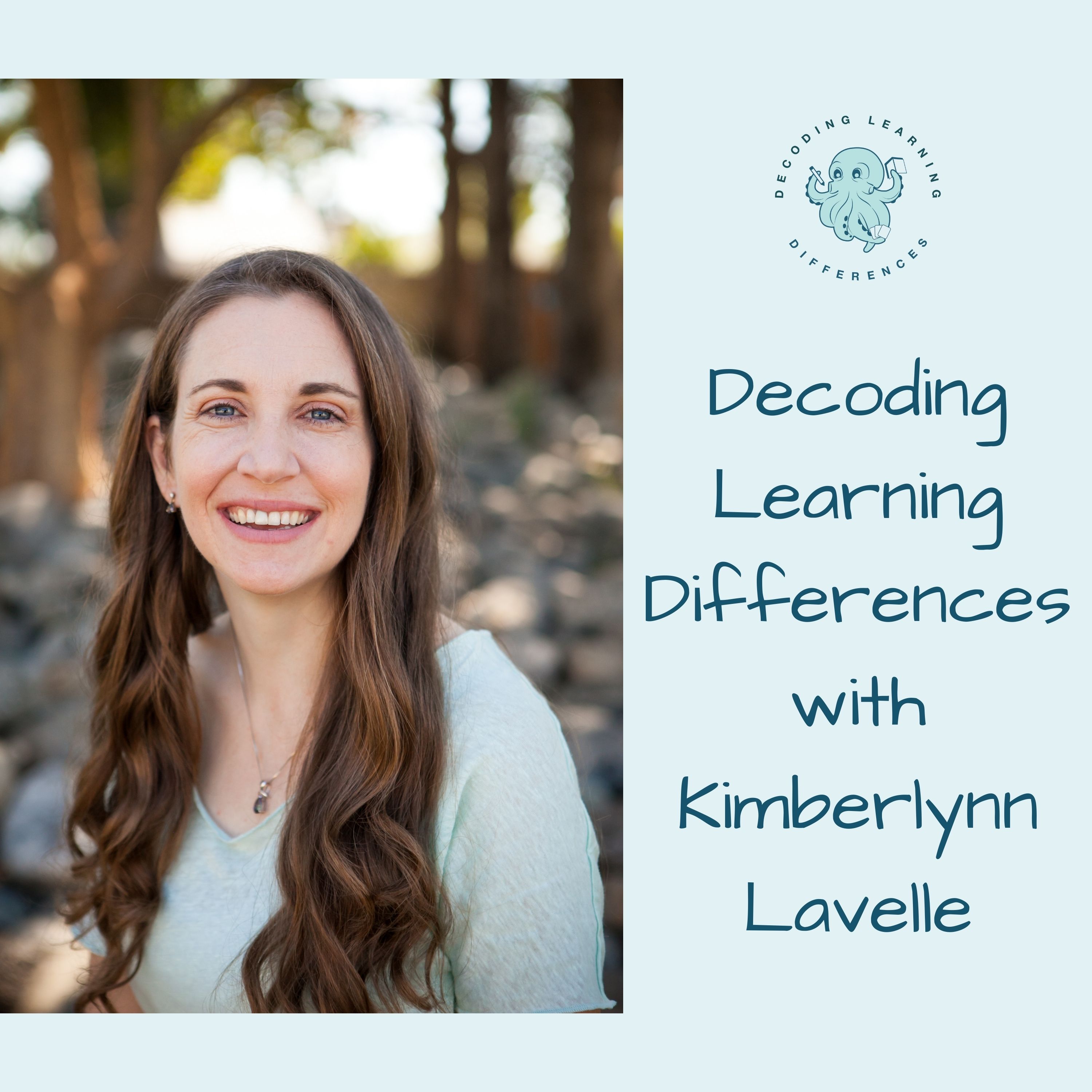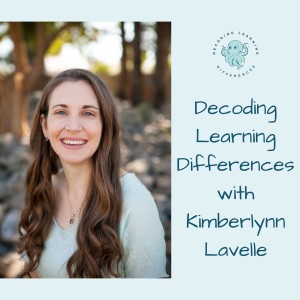

I teach parents how to educate their own children (especially those with struggling learners) so that they can successfully and peacefully homeschool or provide supplemental education at home. This podcast will discuss: - various learning disabilities and challenges, including: ADHD, dyslexia, autism, processing disorders, and so much more! - how all people learn - different learning styles - strategies for supporting specific learning challenges - how to apply these learning strategies at home - stories from homeschooling parents -interviews from other experts
I teach parents how to educate their own children (especially those with struggling learners) so that they can successfully and peacefully homeschool or provide supplemental education at home. This podcast will discuss: - various learning disabilities and challenges, including: ADHD, dyslexia, autism, processing disorders, and so much more! - how all people learn - different learning styles - strategies for supporting specific learning challenges - how to apply these learning strategies at home - stories from homeschooling parents -interviews from other experts
Episodes

Monday May 10, 2021
Max: A Story of an Individualized Education
Monday May 10, 2021
Monday May 10, 2021
Every child is unique and deserves an education uniquely suited to them. Max was an amazingly gifted child with severe dyslexia. He also had ADHD and frustrations had led to some minor behavior problems. He needed an education unlike anyone else.
video and transcript available at: https://www.yourparenthelp.com/podcast_0119

Monday May 03, 2021
Insights on ADHD- Interview with Kara Rocque
Monday May 03, 2021
Monday May 03, 2021
Children with ADHD can be challenging, but they are also full of unique strengths! Listen to this mama and 2E/ADHD expert explain some of these challenges and strengths along with her tips and the myths she's encountered around ADHD.
video of the interview available at: https://www.yourparenthelp.com/podcast_0118

Monday Apr 26, 2021
Dyslexia: What too many people misunderstand
Monday Apr 26, 2021
Monday Apr 26, 2021
There are some common myths around what dyslexia is and how it can best be treated/ remediated/ or worked with. Some believe that dyslexia is about letter reversals (it's not). Some believe that if those with dyslexia just read enough, they'll overcome their reading challenges (not quite...).
video and transcript available at: https://www.yourparenthelp.com/podcast_0117

Monday Apr 19, 2021
Dyslexia Explored- Interview with Beth Sullivan
Monday Apr 19, 2021
Monday Apr 19, 2021
In this interview, we explore the challenges and tips for educating children with dyslexia. We discuss myths around dyslexia and how to help those trying to overcome the dyslexic struggles.
video and transcript are available at: https://www.yourparenthelp.com/podcast_0116
find Beth Sullivan at: https://readingwritingtutor.com/

Monday Apr 12, 2021
Autism: Stories of Individuals
Monday Apr 12, 2021
Monday Apr 12, 2021
Autism is not merely a disability and it is not the sole, defining characteristic of those with autism. Those with autism (some prefer to be call autistics) are individuals with unique preferences, interests, and personalities. They have some things in common, but more things that make them unique!
video and transcript are available at: https://www.yourparenthelp.com/podcast_0115

Monday Apr 05, 2021
Autism Strengths and Advantages
Monday Apr 05, 2021
Monday Apr 05, 2021
Autism is not merely a disability. It is not defined solely by a list of deficits and deficiencies, or at least it doesn't have to be! There are many characteristics of autism that can be optimized and viewed as strengths and advantages!
transcript and video available at: https://www.yourparenthelp.com/podcast_0114

Monday Mar 29, 2021
What Makes Something a Weed?
Monday Mar 29, 2021
Monday Mar 29, 2021
One person's "weed" is someone else's nutritious food! What some try to weed out is desirous to others. When we "weed" out the undesirable behaviors in our children, we may be weeding out what is actually their strength, if encouraged in the right way. Be careful before you start weeding out that which makes your child their unique self!
Transcript and video version at: https://www.yourparenthelp.com/podcast_0113

Monday Mar 22, 2021
The Power of a Tiny Lesson
Monday Mar 22, 2021
Monday Mar 22, 2021
Lessons don't need to be long to be powerful! In fact, the shortest lessons can often have the most impact!
Video and transcript available at: https://www.yourparenthelp.com/podcast_0112

Friday Mar 19, 2021
Is Curriculum Over-rated?
Friday Mar 19, 2021
Friday Mar 19, 2021
Knowing yourself and your child is far more important than which curriculum you choose to buy. Stop the curriculum shopping overload!
But a good curriculum CAN be useful... the guide can help make sure it's a good fit for YOU and YOUR CHILD!
get the guide at: https://www.yourparenthelp.com/curriculumguide
transcript and video available at: https://www.yourparenthelp.com/podcast_0111

Monday Mar 08, 2021
Two Math Skills That You Just Can't Leave to the Curriculum!
Monday Mar 08, 2021
Monday Mar 08, 2021
Math curriculum can be helpful but when parents and schools rely on math curriculum for these two skills, kids don't gain the fluency they need!
These two skills are also very helpful in teaching deeper math skills in the future so don't neglect it!
I give some very concrete tips on how to work these two skills into your daily lives.
video available: www.YourParentHelp.com/podcast_0110